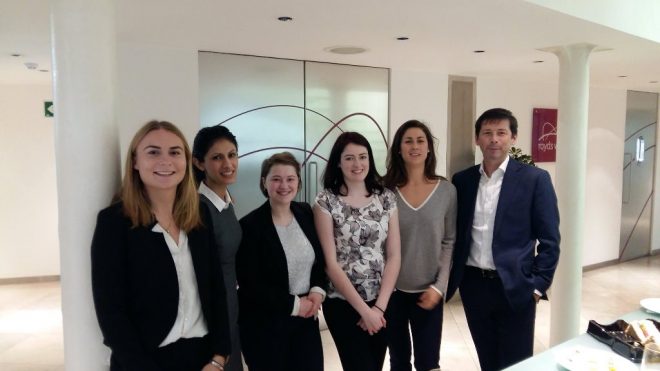5 top tips for future trainees

Having recently qualified into our Corporate & Commercial department, Solicitor Ivelina Morris offers some advice to future trainees and law students. She says: “The last two years of the training contract, experiencing employment, commercial property and corporate law, have been diverse, exciting and fast-paced. Reflecting back, here are the top five things I would have told my future trainee self."
Effective time management and organisation skills pay off.
Being a lawyer requires managing various tasks with different client priorities and constantly changing deadlines. With so many matters to juggle, time management and good organisational skills are essential to success. Find out what works best for you, but I personally recommend keeping updated “to-do lists”, diarising reminders for tasks and consistently updating all relevant people with the required timescales and deadlines.
Do not be anxious about asking questions and seeking assistance.
I appreciate the natural eagerness to show your knowledge and impress others, which could sometimes make you afraid of asking the wrong questions or seeking guidance. Asking questions, however, is one of the best ways to learn and ultimately saves you time in the future as you build your knowledge and learn from your mistakes. Important things may also come to light when you discuss matters in detail, which could lead to better outcomes and it helps you develop your commercial awareness. RWK Goodman strongly believes in supporting trainees and colleagues are always happy to give guidance and support even at the busiest of times.
Listen actively and ensure all instructions are clearly understood.
The skills of active listening and clarification are important in any profession but they are vital for your legal career. Good listening skills not only involve fully focusing on the speaker but also the ability to reflect words and feelings back to them and to ensure any message is understood and conveyed correctly. The most useful techniques I have learned are: (i) repeating a summary of what was said back to the speaker in your own words and (ii) summarising the main points in a logical and clear way and giving the speaker a chance to correct you if necessary. This is also a useful way to make sure both parties are clear on next steps.
Always consider the practical solutions for clients.
It is easy to focus on a task or a particular issue, especially when you are dealing with a complex matter. However, you should always try to see the bigger picture and understand how specific issues affect your client’s overall objectives. The ability to apply your legal and commercial knowledge to your client’s circumstances and provide practical advice and solutions is a key skill to develop in order to build long-lasting relationships with clients.
Do as much networking as you can.
The opportunity to contribute to business growth is probably the most obvious reason for networking but networking is also a really valuable way to expand your knowledge through conversations, raise your profile and build relationships with valuable contacts. It may initially seem daunting or time-consuming but regularly attending business and social events ultimately helps you get increased confidence, learn from the success of others and develop your own skills.